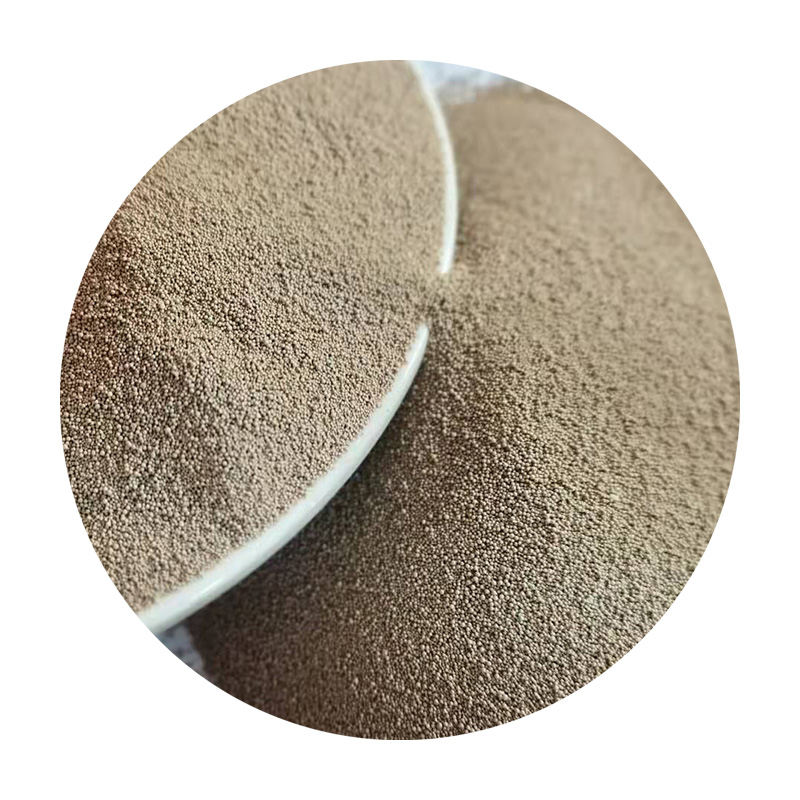The Significance of Resin Sand in Modern Foundry Processes
In the ever-evolving landscape of metal casting, the integration of innovative materials and technologies has become paramount for improving product quality and production efficiency. One such innovation is the use of resin sand, a molding material that has gained considerable traction in the foundry industry over the past few decades. This article explores the properties, advantages, and applications of resin sand, shedding light on its significance in modern casting processes.
What is Resin Sand?
Resin sand is a type of foundry sand that is made from a mixture of silica sand and a resin binder, typically phenolic or furan resin. Unlike traditional molding sands that rely on clay binders, resin sand exhibits superior strength and durability. The process of binding the sand with resin involves the application of heat, which causes the resin to cure and harden, resulting in a rigid mold that can withstand the pressure of molten metal during casting.
Properties of Resin Sand
The key properties that make resin sand an attractive option in metal casting include its high strength, excellent permeability, and remarkable dimensional accuracy. When compared to traditional sands, resin sand molds exhibit better mechanical properties, which leads to reduced defects in casting, such as warping and distortion. Additionally, resin sands can withstand high temperatures, making them suitable for a wide range of alloys and metallurgical processes.
Another noteworthy characteristic of resin sand is its thermal conductivity, which allows for efficient heat transfer during the solidification of molten metal. This enhanced thermal performance contributes to improved surface finish and finer details in cast products, crucial for industries such as automotive, aerospace, and machinery manufacturing.
Advantages of Using Resin Sand
The use of resin sand in foundry applications presents several advantages
1. Reduced Casting Defects The high strength of resin sand molds minimizes the occurrence of common casting defects, which can lead to significant scrap rates and increased production costs.
resin sand

2. Enhanced Surface Finish Resin sands produce smoother casting surfaces compared to traditional sand molds. This reduces the need for extensive post-casting machining, saving time and resources.
3. Increased Productivity The quick setting time of resin sands facilitates faster production cycles. Foundries can produce molds in a shorter time frame, allowing for increased output and efficiency.
4. Versatility Resin sand can be tailored to suit specific casting requirements, making it suitable for various applications, including complex geometries and intricate designs.
5. Environmentally Friendly Options Advances in resin technology have led to the development of more environmentally friendly resins, which reduce emissions and improve worker safety in foundries.
Applications of Resin Sand
Resin sand is extensively utilized in various industries. The automotive sector, for example, benefits greatly from resin sand molds for producing engine blocks, transmission cases, and other critical components. The aerospace industry relies on high-precision resin sand molds for producing lightweight and complex parts that are crucial for flight performance.
Additionally, the energy sector uses resin sand in the manufacturing of turbine components and other high-stress applications. The oil and gas industry, too, has found resin sand to be valuable for creating durable components that withstand harsh conditions.
Conclusion
As the foundry industry continues to innovate, resin sand stands out as a game-changer that enhances the quality and efficiency of metal casting processes. With its superior strength, excellent thermal properties, and versatility, resin sand is poised to become even more prevalent in modern manufacturing practices. In an era where precision and efficiency are paramount, the adoption of resin sand not only addresses the challenges faced by traditional casting methods but also paves the way for future advancements in the field. As industries increasingly demand high-quality components, the role of resin sand will undoubtedly expand, solidifying its position as a cornerstone of contemporary foundry technology.
Post time:តុលា . 21, 2024 11:34
Next:Exploring the Advantages of Fine Casting Sand in Metalworking Applications
